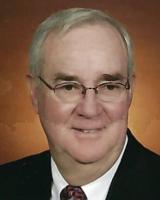West Virginia, like many other states, faces life-altering challenges of severe weather, adverse socioeconomic situations, and an aging population. All of these factors create a perfect storm when disaster strikes. I believe it is time to begin to look at new and better ways to tackle disaster relief and long-term recovery efforts.
Disaster often strikes in the Mountain State we know and love with unforgiving force. From devastating floods to crippling storms, West Virginia has faced its share of challenges. However, it’s not just the natural landscape that bears the scars of these calamities; it’s the resilient communities and the steadfast people who call this place home. As we look to the future, it’s imperative to recognize the pressing need for comprehensive disaster relief efforts in West Virginia that extend beyond a response-only strategy.
In recent years, West Virginia has been battered by a series of catastrophic floods that have left indelible scars on the landscape and the collective psyche of its residents. The floods of 2016 were among the deadliest in the state’s history, claiming lives and causing widespread devastation. Yet, even as the floodwaters receded, the complex and arduous process of rebuilding and recovery had only just begun. As recently as April 2024, tornados, floods, and heavy winds again hit southern West Virginia. The aftermath has left many Mountaineers without safe, warm, or dry homes.
The West Virginia Ministry of Advocacy & Work Camps (WVMAW), a 501C(3) non-profit, has taken on as part of its mission the disaster of poverty, weather, and broken hearts to support recovery efforts on the ground. For more than two decades, WVMAW has served families across West Virginia with the expressed goal of giving a hand to those in need of support. In 2024, WVMAW has renewed its commitment and continues to build on the decades of service and is amplifying their efforts to support needs at home. With nearly 30 volunteer teams supporting projects throughout West Virginia this summer, WVMAW is doing more than fixing homes – we are raising awareness of the needs every day West Virginians are facing.
At WVMAW – we aid families in need by following the conviction that pragmatic change is forward thinking.
Ways we assist families:
• Coordination of volunteer work teams to increase our labor capacity and productivity.
• Providing services to make homes more energy efficient via underpinning, insulation, roofing repairs.
• Accessibility upgrades via wheelchair ramps, floor restorations, and railing upgrades.
• Flood remediation and cleanup.
The need for comprehensive disaster relief in West Virginia extends far beyond mere recovery efforts. It encompasses a wide range of initiatives aimed at building resilience, strengthening infrastructure, and fostering community preparedness. This includes investments in flood mitigation projects, the modernization of aging infrastructure, and the implementation of early warning systems to alert residents of impending disasters.
Moreover, disaster relief efforts must prioritize the needs of the most vulnerable communities, including those in rural and low-income areas. These communities often lack the resources and support systems necessary to withstand and recover from disasters. As such, targeted assistance programs and outreach efforts are essential to ensuring that no one is left behind in the aftermath of a disaster.
Furthermore, collaboration and coordination among federal, state, and local agencies are paramount to the success of disaster relief efforts in West Virginia. By pooling resources and expertise, we can ensure a more effective and efficient response to disasters when they occur. This also requires a commitment to transparency, accountability, and community engagement throughout the entire relief process.
I believe in West Virginia and the people who reside here. The task at hand is not simply responding to disaster – but being proactive in mitigating the challenges we face despite disaster. WVMAW plans to act broadly, cohesively, and with a ferocious desire to serve each other well. That’s what being a West Virginian is about.
Emergency response leadership in West Virginia is critically needed as we reach an influx of disasters ranging from extreme weather to extreme poverty and aging. WVMAW stands ready to take a leadership role as the organization looks to meet the needs of those suffering and fully prepare itself for the challenges ahead.


















Commented
Sorry, there are no recent results for popular commented articles.